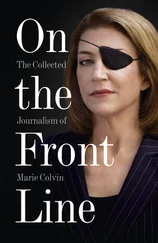As the soldiers left, there was a moment of silence. Then the manager strode to the dance floor and, with a grandiose flourish, restarted the band and the singer. The lights dimmed and laughter flooded the room again – the forced laughter of relief.
Basra, capital of the south and home to Iraq’s Shi’ite majority, is a city under siege. Whereas Baghdad has been largely rebuilt since the Gulf War, Basra still bears the scars of allied bombing and the rebellion that saw officials of the ruling Ba’ath party slaughtered in the streets and government buildings and hospitals looted and torched.
Today, fear of Iranian infiltrators, army deserters and fugitive rebels empties the city’s streets after 9pm. Food is scarce and expensive. The factories, port and oil plants are closed; its hospitals desperately short of medicine and filled with malnourished babies.
Fifty life-sized statues of dead heroes of the Iran–Iraq war line the corniche on the Shatt al-Arab, their arms pointing across the water towards the old Iranian foe. Locals, fearful of the enemy within, joke that they should point in every direction.
The man charged with keeping order in Basra is Brigadier General Latif Omoud, a governor who sits behind a desk with 10 telephones. It is impressive, but unconvincing.
The city’s telecommunications have not been restored since the end of the Gulf War 18 months ago, and a line has to be installed to each number he wants to call. ‘The pink telephone is for my girlfriend,’ he joked.
Dressed in a neatly pressed uniform and with his hands manicured, Omoud appears unbowed by the calamitous state of the city he took over after Iraqi forces crushed the Shi’ite rebellion in March last year.
He has not been amused, however, by the news that Britain, France and the United States were preparing to enforce an air exclusion zone south of the 32nd parallel to protect the Shi’ites in the southern marshlands from destruction by Saddam.
Any Iraqi plane or helicopter that flies will risk being shot down. Since Basra is 100 miles south of the 32nd parallel, Omoud was angry and perplexed. The general, who sees himself on the front line with Iran, claims to have quelled the ‘security problem’ in Basra.
But the road south from al-Amarah to Basra remains a no-go zone at night; checkpoints are attacked, soldiers killed and civilians robbed. It will get much worse, said Omoud, if the allied plan is enforced.
‘We have arrested many infiltrators in Basra,’ he said. ‘They come from Iran to commit acts of sabotage. We should be allowed to fly our planes and helicopters to counter the Iranian menace.’
He made no apology for the attacks on the marshes, insisting they were a haven for rebels and Iranian agents. The West, Omoud said, was short-sighted: ‘The Iranians are still interested in exporting their revolution.’
Then the governor was off, speeding away in his armoured white Mercedes followed by a jeep with a mounted machinegun and two cars full of soldiers. Behind him, sweltering in the 53°C heat, bricklayers continued rebuilding his governor’s garrison, which had been gutted during the rebellion.
The real picture in the south is difficult to piece together in a tightly controlled nation of nervous people. But it is clear that the government has won the upper hand in the war with the 30,000 rebels in the Hawaiza marshes, a 6,000-square-mile swampland of waterways and reed banks.
The attacks against insurgents in the marshes, according to diplomats in Baghdad and interviews in Basra and al-Amarah, began around 21 July. There is little doubt they were brutal. Diplomats believe that Iraq used helicopter gunships and artillery against the marsh Arabs but has not sent in ground troops because of the treacherous terrain.
The rebels had little chance. Besieged, they were killed or forced to flee or surrender. Many civilian marsh dwellers also died. The season favoured the army; in July and August the marshes dry up, making operations easier. One source said 9,000 rebels had surrendered or been captured.
The few townspeople in al-Amarah willing to talk say the roads are too dangerous to travel at night. At the Saddam Hussein general hospital, Dr Ayad Abdul Aziz said there had been constant attacks on civilians and soldiers in the area near the marshes.
But operations by the Iraqi army seem to have ended. The military appears to be in defensive positions. Nightly on Iraqi national television, captured rebels make their confessions.
One Iraqi, a PoW from the Iraq–Iran war, claimed he had been forced to fight for Iran: ‘It was decided to start a sabotage campaign. I received verbal instructions to go on a fact-finding mission in Iraq. We needed information on the security status. I carried false identification, money and a pistol.’
He said he met rebels who had plentiful supplies of explosives and weapons, and sent back information to Iran. The interviewees show extraordinary calm while making their confessions; it is widely assumed they are executed afterwards.
‘Of course they are calm,’ said one Iraqi viewer last week. ‘They know it is the end of their lives.’

Critics are silenced as Saddam rebuilds Iraq
BAGHDAD
4 October 1992
Arc lights on the roof of the National Conference Palace shone through the night and into the pink dawn last week as construction workers hammered and welded round the clock to repair the bombed building. It might have been an unremarkable scene in a city recovering from 43 consecutive days of air attack, except for one thing: it was the last important building to be restored.
Little more than 18 months after the Gulf War ceasefire, you have to scour the back streets of Baghdad for any sign of the heavy bombing it underwent. Iraqi engineers have repaired all but one of the bridges destroyed during the hostilities and rebuilt the 14-storey central telephone exchange on the bank of the Tigris, bombed so often that by the end of the conflict it was just a concrete shell with steel and wires curling from the windows. Gutted ministries have been reconstructed, rubble removed.
The main power plant, which was lit almost nightly by flashes from explosions, is working at 90% of its pre-war capacity. Soon after the bombing ended, an engineer at the plant said it would take at least two years to get it working again; but there was not one blackout during the blazing hot summer, when Baghdadis ran their air-conditioning at full blast.
The list of achievements goes on. Oil production is back to about 800,000 barrels a day, although United Nations sanctions prohibit Iraq from selling its petroleum abroad. Restored refineries supply more than enough petrol and heating oil for Iraq’s domestic needs and exports to Jordan. Iraqi experts say they could now pump 2 million barrels a day.
The six-lane highway from Baghdad to the Jordanian border, littered with craters from nightly raids, is now a smoothly surfaced superhighway. Three weeks ago the evening news showed Saddam Hussein congratulating workers for finishing repairs on the presidential palace.
In fact, much of the current construction in Baghdad is of new buildings. Enormous villas are sprouting in the wealthy Mansour district, financed by war profits. Newspapers report the progress of the Third River project, the construction of a 350-mile canal that will drain the rising water in the Tigris-Euphrates basin to reclaim land.
Yesterday, Saddam announced that construction would resume, using Iraqi designs and expertise, of an enormous petrochemical complex which the war forced foreign companies to abandon. When finished, it will be the largest in the Middle East.
Читать дальше













